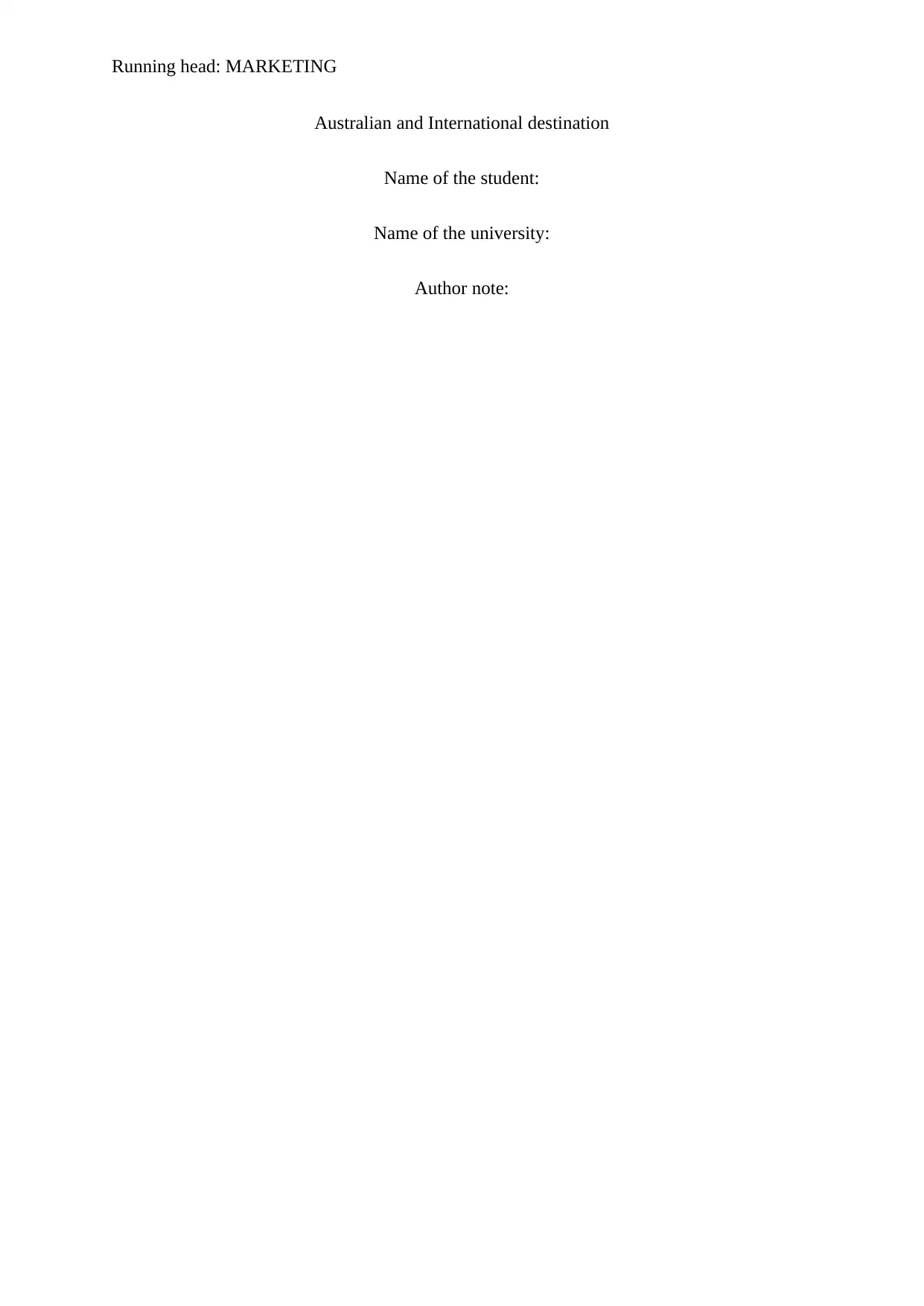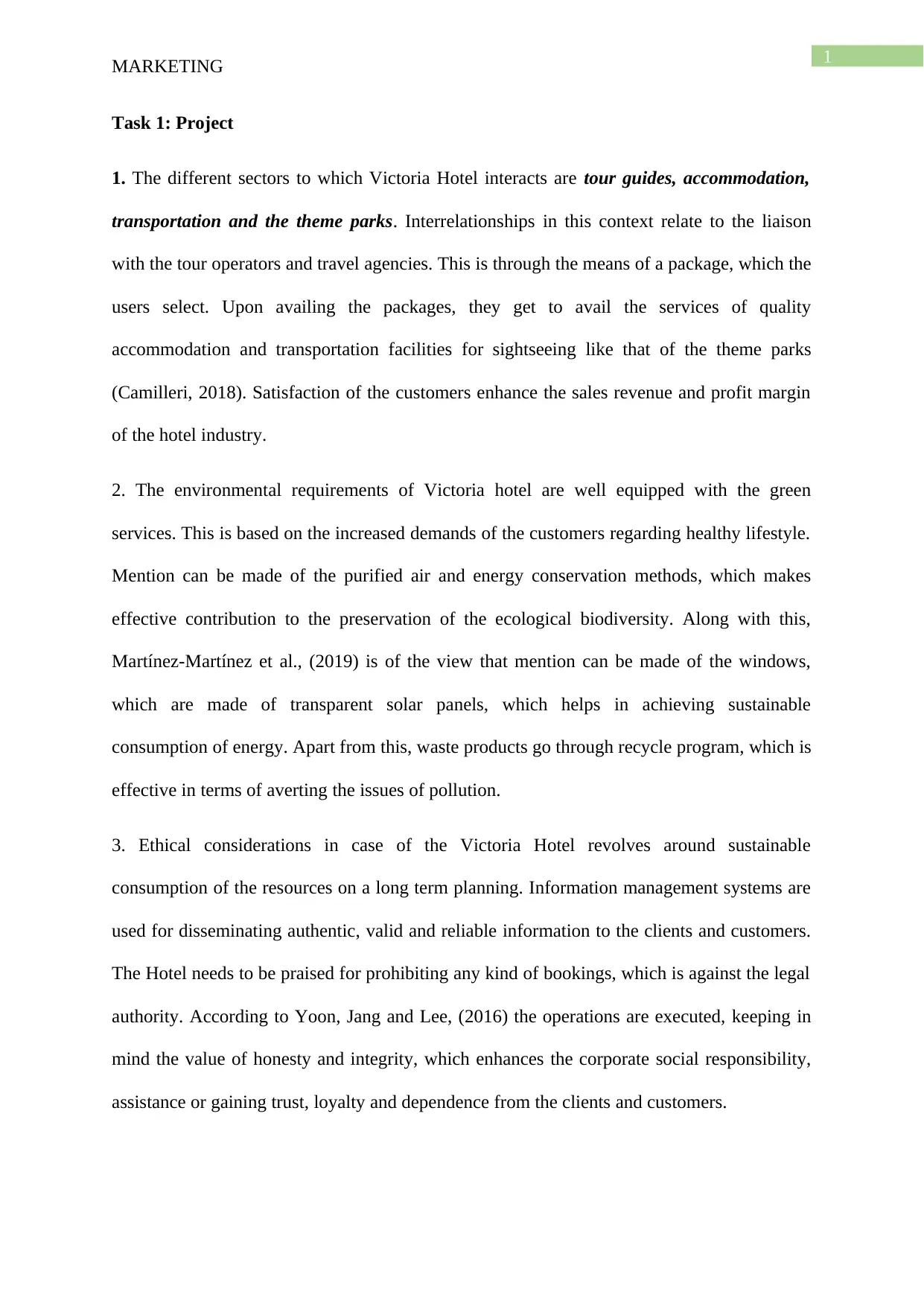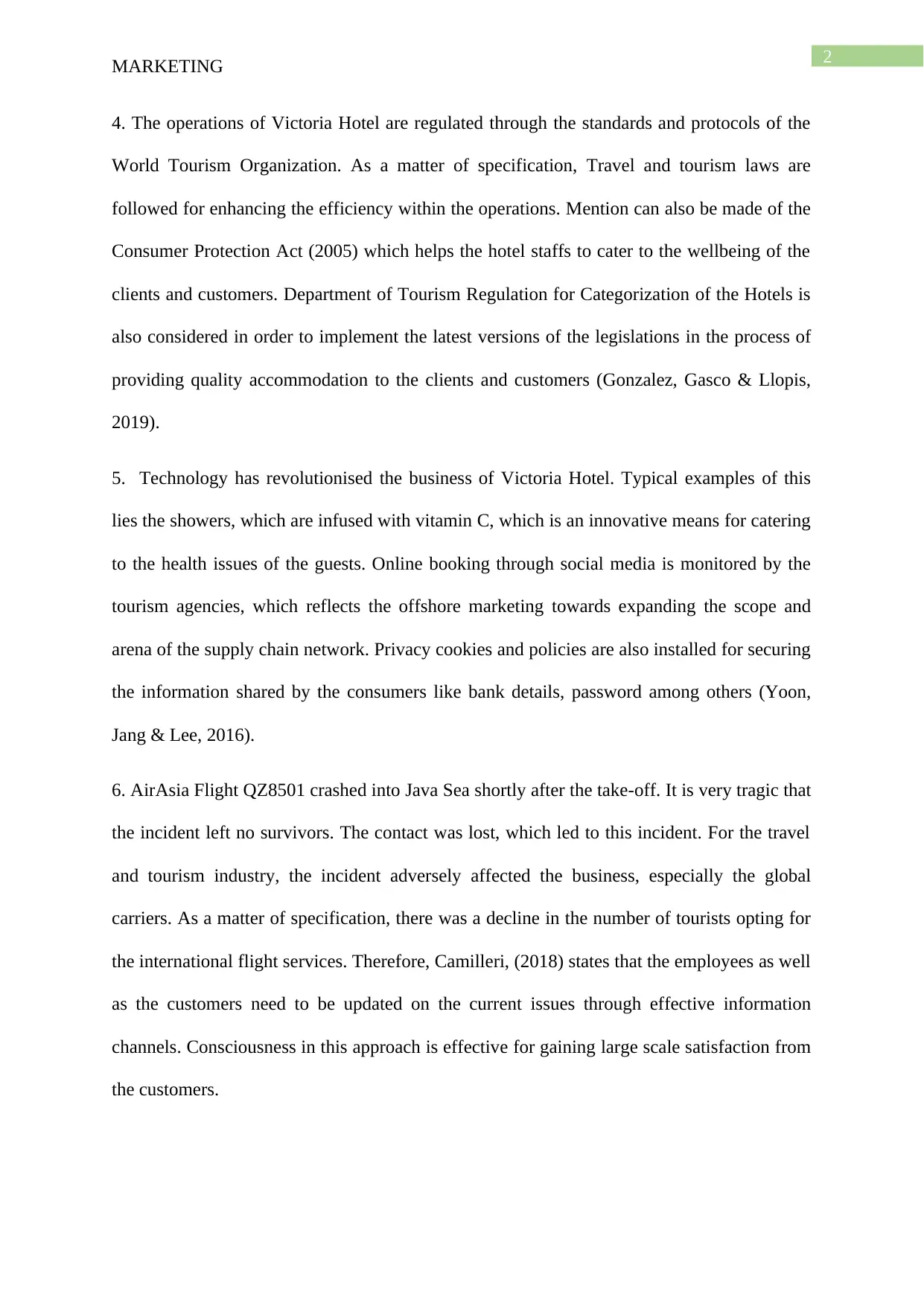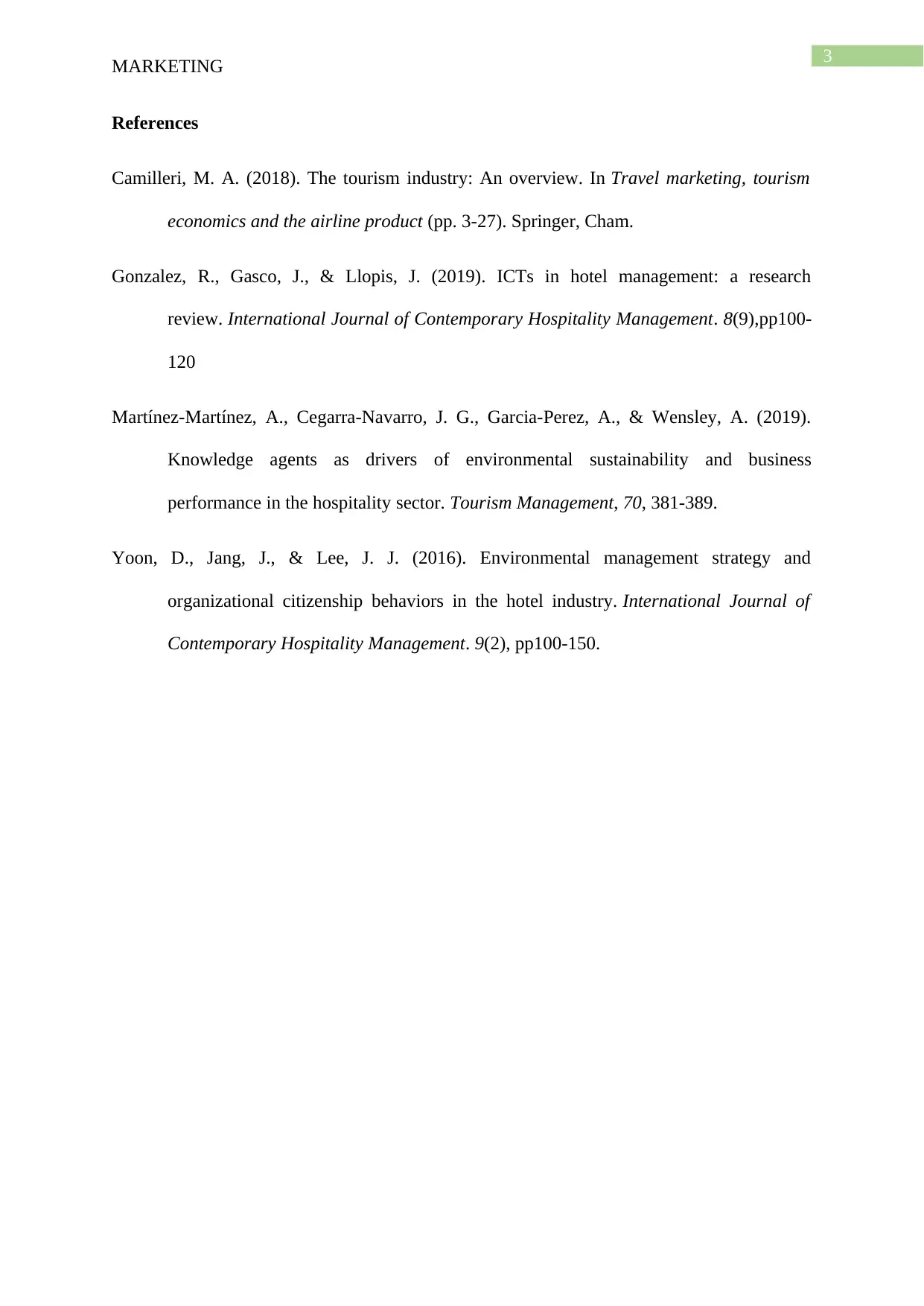Marketing Report: Victoria Hotel, Australian Destination
VerifiedAdded on 2022/12/09
|4
|854
|389
Report
AI Summary
This report provides a comprehensive analysis of the marketing strategies employed by Victoria Hotel, focusing on its interactions with key sectors such as tour guides, accommodation, and transportation. It delves into the hotel's environmental requirements, emphasizing its commitment to sustainable practices and energy conservation. Ethical considerations are also examined, highlighting the hotel's adherence to honesty, integrity, and corporate social responsibility. The report further explores the regulatory framework governing the hotel's operations, including the standards of the World Tourism Organization and consumer protection laws. The impact of technology on the hotel's business is discussed, with examples such as innovative guest amenities and online booking systems. The report also addresses the impact of external events like the AirAsia Flight QZ8501 incident on the tourism industry, emphasizing the importance of effective information dissemination. The report concludes by referencing relevant academic sources to support its findings, providing a well-rounded perspective on the marketing challenges and opportunities within the hotel and tourism sectors.
1 out of 4











![[object Object]](/_next/static/media/star-bottom.7253800d.svg)